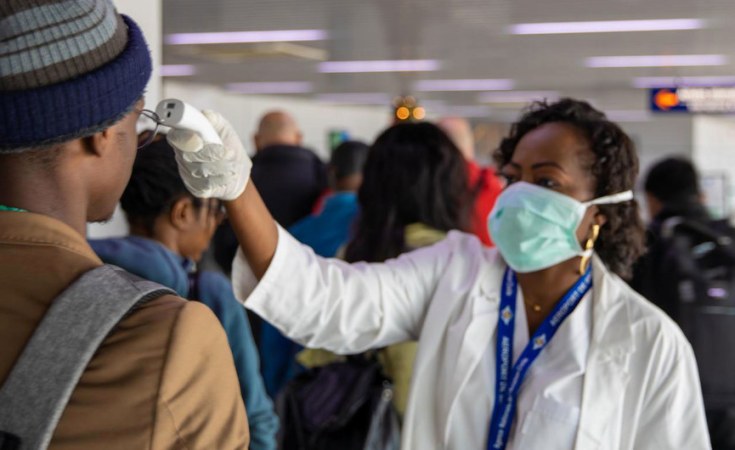Geneva — The World Health Organization says that South Africa and Botswana should be thanked for detecting, sequencing, and reporting the new Covid-19 variant, known as Omicron and not penalized.
"The emergence of the highly-mutated Omicron variant underlines just how perilous and precarious our situation is," said WHO head Tedros Adhanom Ghebreyesus Monday in a keynote speech
He was starting a special session called by the WHO's governing body, the World Health Assembly, for preparatory talks about a new global treaty covering pandemics,
Later, UN Secretary-General Antonio Guterres spoke out on it too when he said, "I commend the government and science and health community of South Africa for acting early to identify the emergence of a new COVID-19 variant. I am now deeply concerned about the isolation of southern African countries due to new Covid-19 travel restrictions."
Announcement of Omicron
The statements of Tedros and Guterres followed the announcement on November 26 of a new Covid-19 variant called Omicron discovered in southern Africa.
"The best way we can address them is with a legally binding agreement between nations; an accord forged from the recognition that we have no future but a common future," said Tedros.
Representatives of WHO's 194 member states are meeting in a hybrid format for three days to consider new international rules for handling future pandemics.
The WHO chief said that Omicron, which was only on November 26 declared a "variant of concern, demonstrates why the world needs a new accord on pandemics.
"Our current system disincentivizes countries from alerting others to threats that will inevitably land on their shores," said the WHO chief.
"In less than a year, almost 8 billion vaccines have been administered around the world – the largest vaccination campaign in history.
"But a year ago, as we began to see some countries striking bilateral deals with manufacturers, we warned that the poorest and most vulnerable would be trampled in the global stampede for vaccines," said Tedros.
He explained that more than 80% of the world's vaccines have gone to G20 countries while low-income countries, most of them in Africa, have received just 0.6% of all vaccines.
"But vaccine equity is not charity; it's in every country's best interests," he said.
"Everybody knows that pestilences have a way of recurring in the world… There have been as many plagues as wars in history, yet always plagues and wars take people equally by surprise."
South Africa's Health Minister Joe Phaahla was among a plethora of health ministers who spoke, delivering on behalf of southern African nations.
He said that the new variant was first identified in samples collected on November 11 in Botswana and on November 14 in South Africa during routine genomic surveillance.
"And many countries are already reporting it beyond South Africa, and it cannot be traced to travel to our region. That's why it has been indicated that Omicron is the most divergent variant that has been detected," said Phaahla.
"It is against this backdrop that we wish to convey our disappointment in member states who have proposed travel bans in our countries."


